I love modern and vintage design. The mid-century aesthetic that has become timeless speaks to the functional form, simplistic beauty, and celebration of the natural world that I hold dear.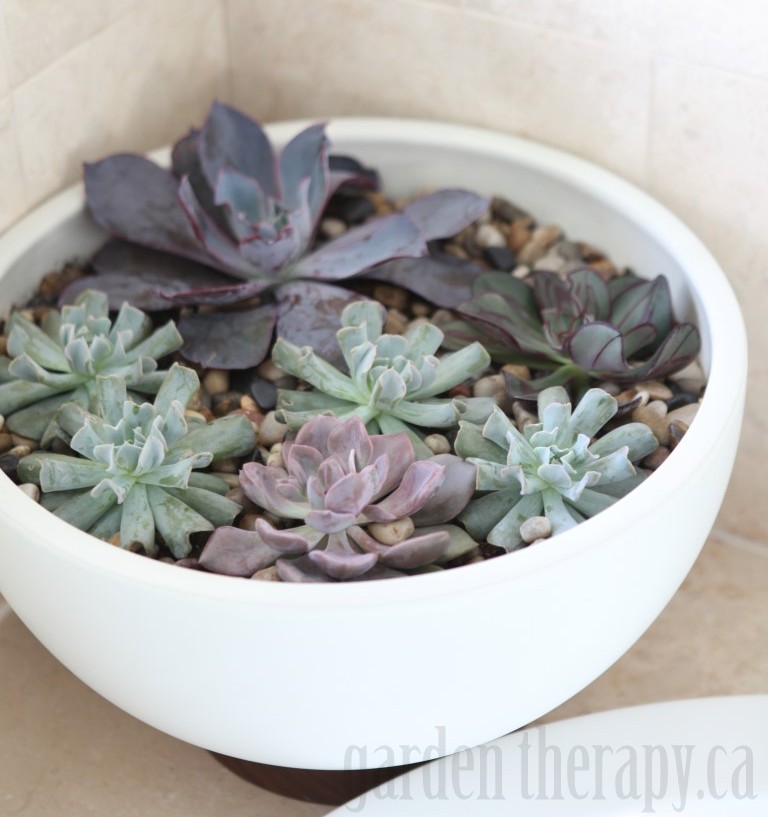
This is why I was overjoyed to learn that distinguished manufacturer and designer of modern furniture, Modernica, has created some stunning ceramic planters available for indoor or outdoor plantings. I thought it was my lucky day when they offered to send me a Case Study Ceramic Bowl with Brazilian walnut plinth to try out.
When it arrived I realized it really was a great day but also one that I get to share…we are giving away the same white planter valued at $189.00 to one of our lucky readers! Check out the contest at the end of the post to see how to enter the draw.
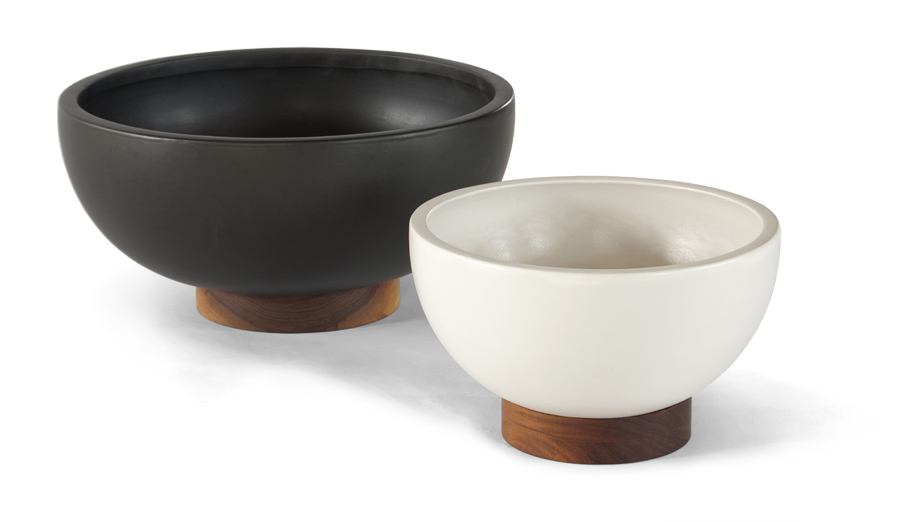
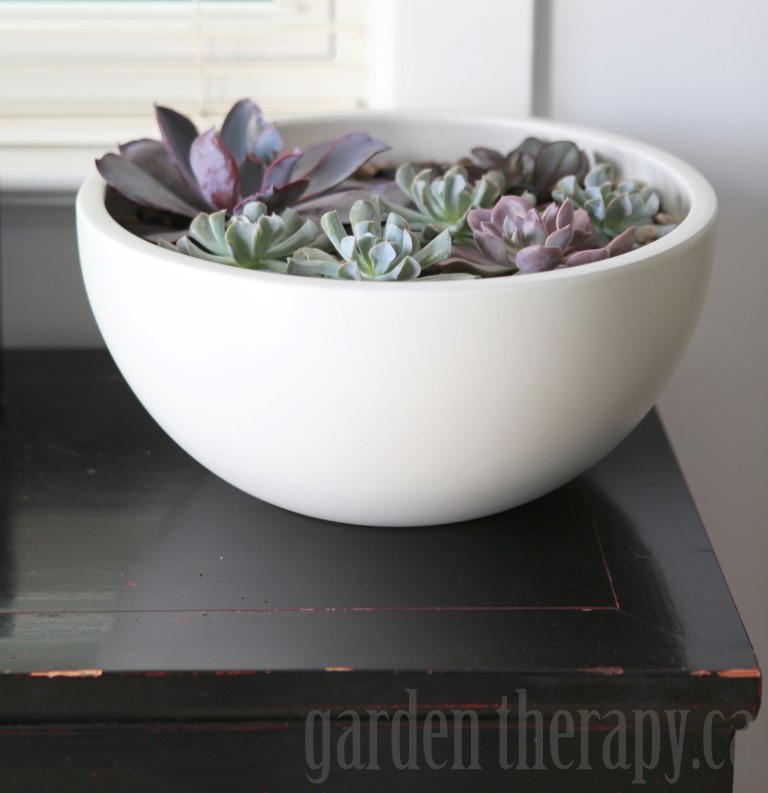
The heavy ceramic bowl can be set atop the warm wood plinth or set directly on display surface. Since there are no holes in the bottom for drainage, I opted for a indoor display and it seemed to fit so well into just about every room of my home. The hardest thing to decide was how to design the plantings. After toying with the idea of giving the space to my staghorn fern, I ultimately decided that this modern bowl would look at home beside the tub with Echeveria set in like blooming lotus flowers. Here are the instructions to make your own.
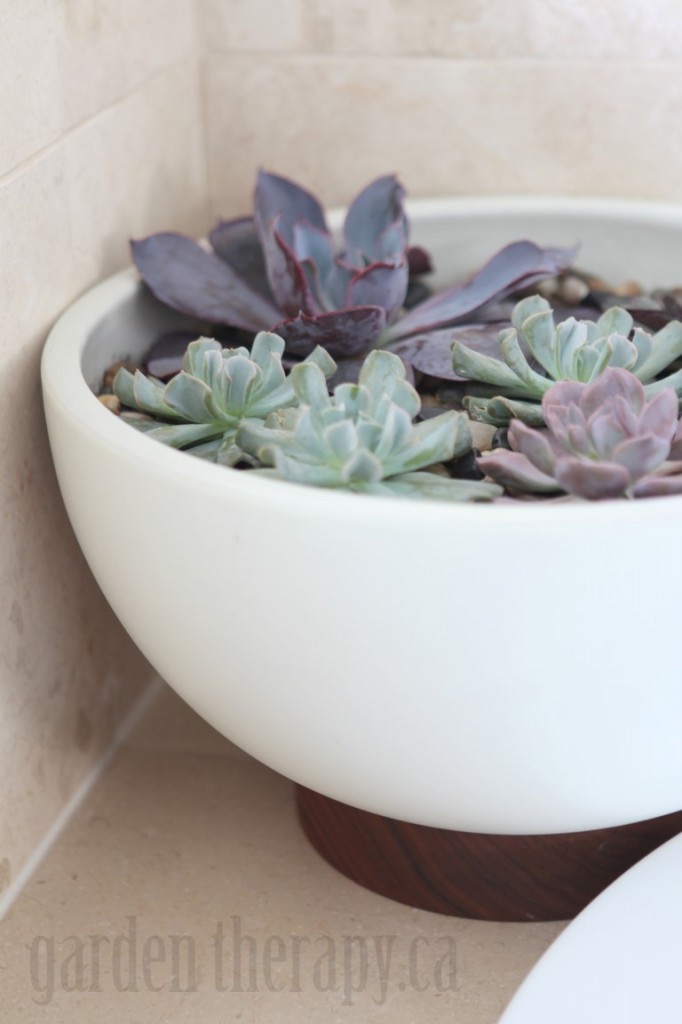
Materials:
- Case Study Ceramic Bowl with Brazilian walnut plinth
- cactus and succulent soil mix
- Echeveria runyonii
- Echeveria nodulosa
- Echeveria ‘Perle von Nurnberg’
- Echeveria ‘Ruffles’
- polished river stones
Directions:
1. Prepare your succulents for transplanting by cutting the rosettes off the stem with a inch or so of stem and set in a dry area out of direct light. If your plants are new and close to the soil, you can skip this step. If your plants are quite tall with dried out leaves at the bottom, it’s best to cut them and allow the cut end to dry before planting. Leave the cuttings out until roots begin to form, then they are ready to transplant.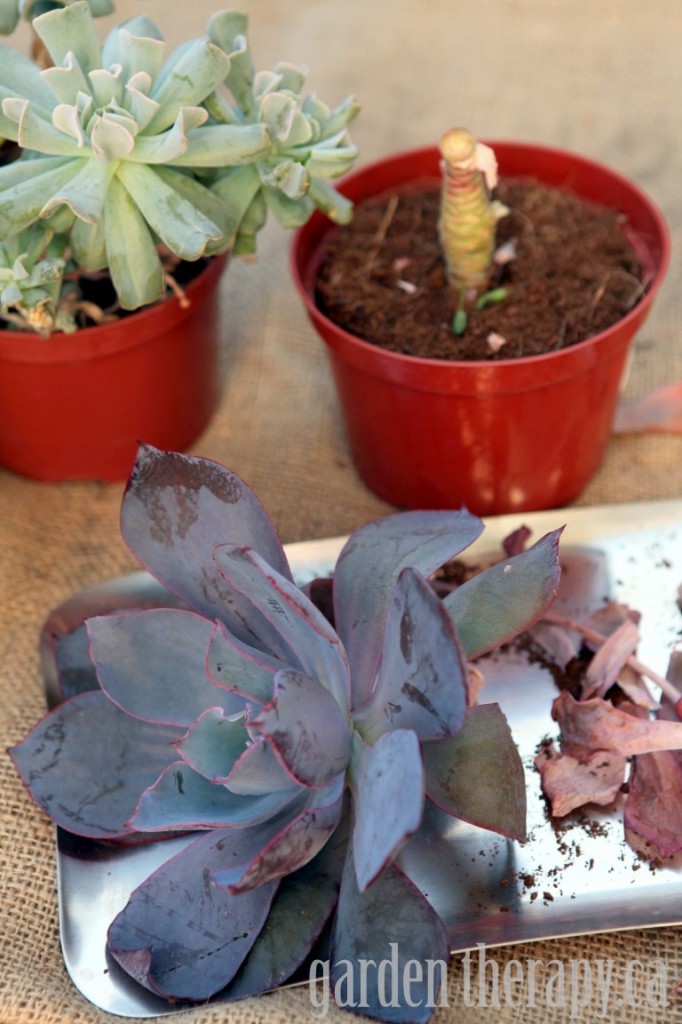
2. Fill the planter with cactus and succulent soil mix which is specially blended to drain moisture away from the roots. Echeveria need very little water once established so they should be fairly easy to care for if you are careful not to over water them. It is such a large bowl that I plan to water just the top of the soil from time to time and not worry about adding drainage. If you plan to use your planter outside or are concerned with managing the proper drainage of the plants, you can have Modernica drill holes in your planter before it arrives or follow these instructions for adding drainage and charcoal. 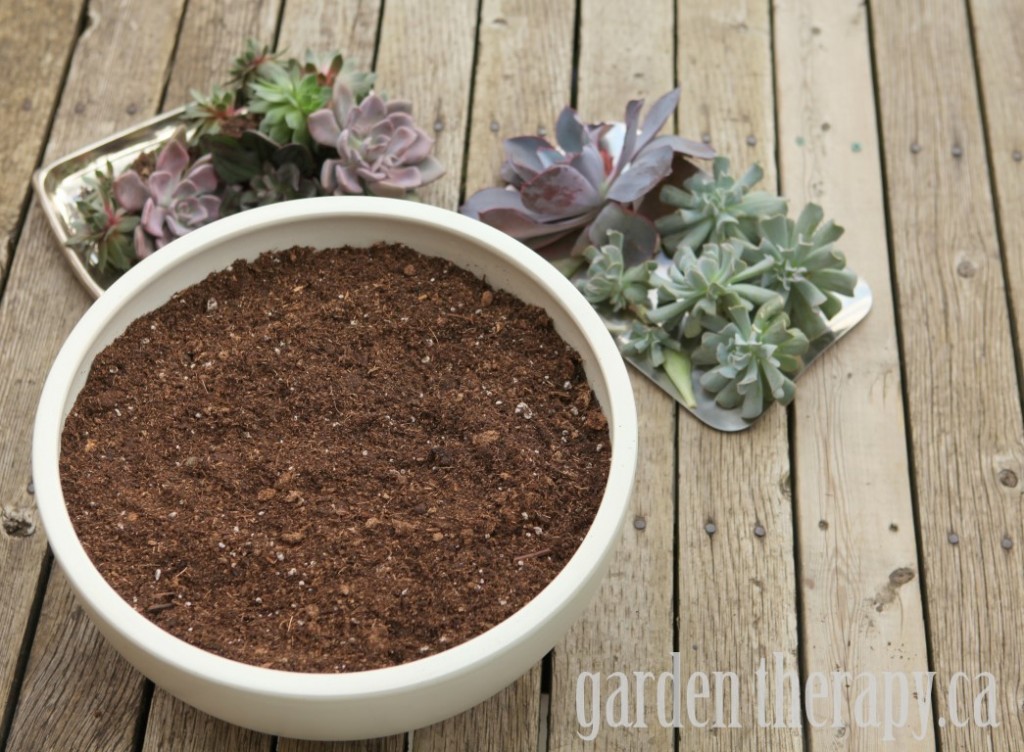
3. Tuck in the stems of the Echeveria into the potting mix and water lightly.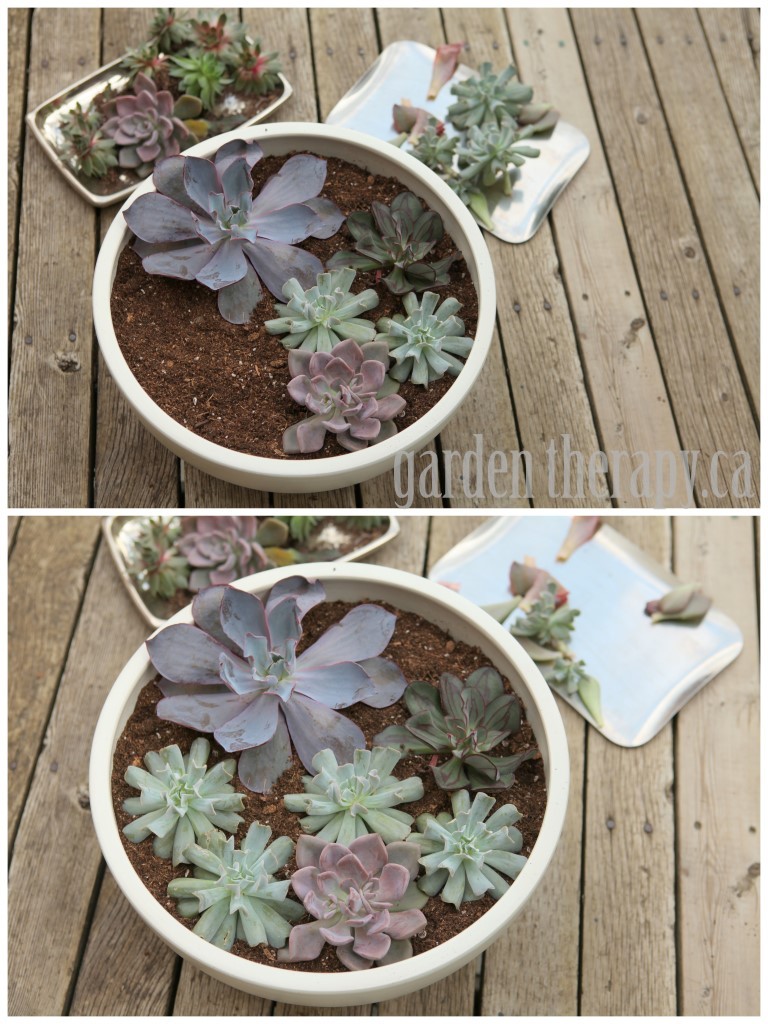
4. Cover soil with river stones.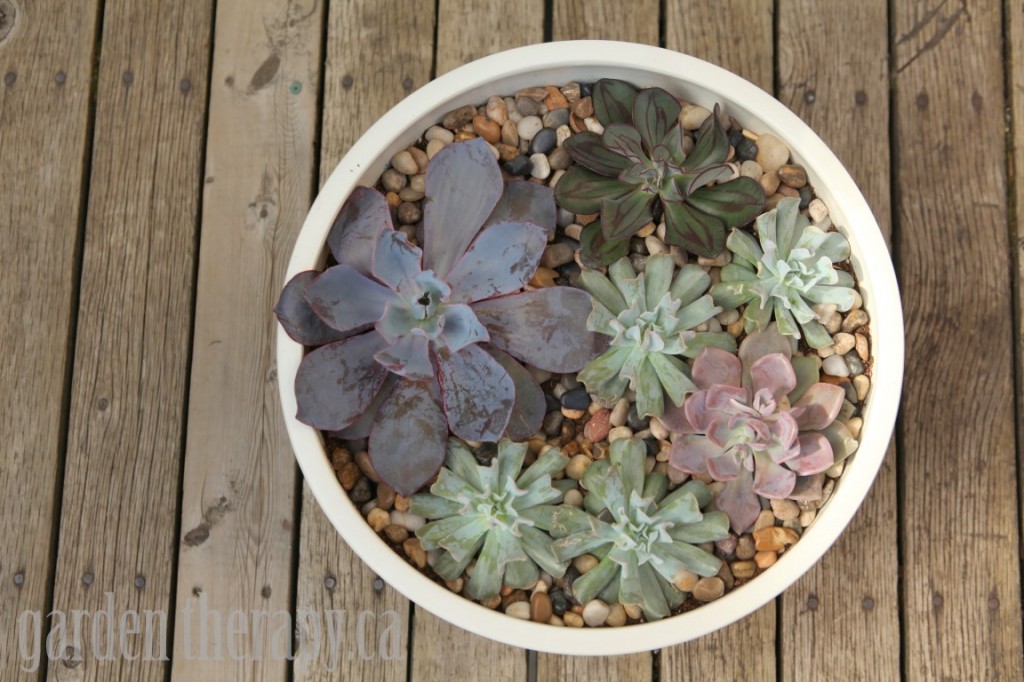
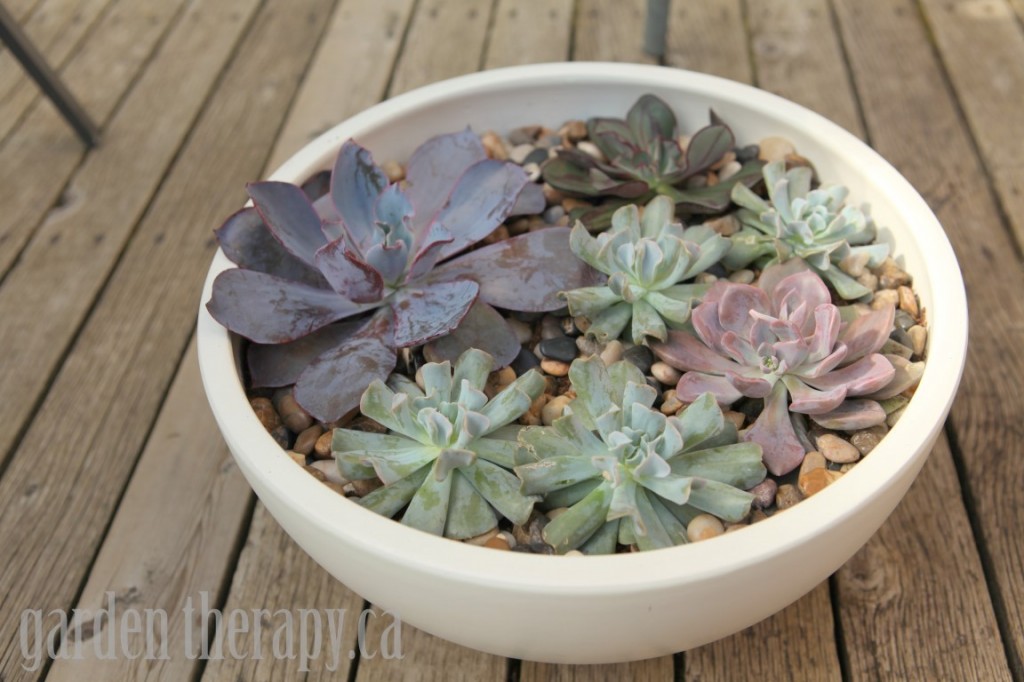
Now you can set your planter in it’s new home and enjoy the beautiful leaves, and soon the bright coloured flowers that will pop up on happy plants.
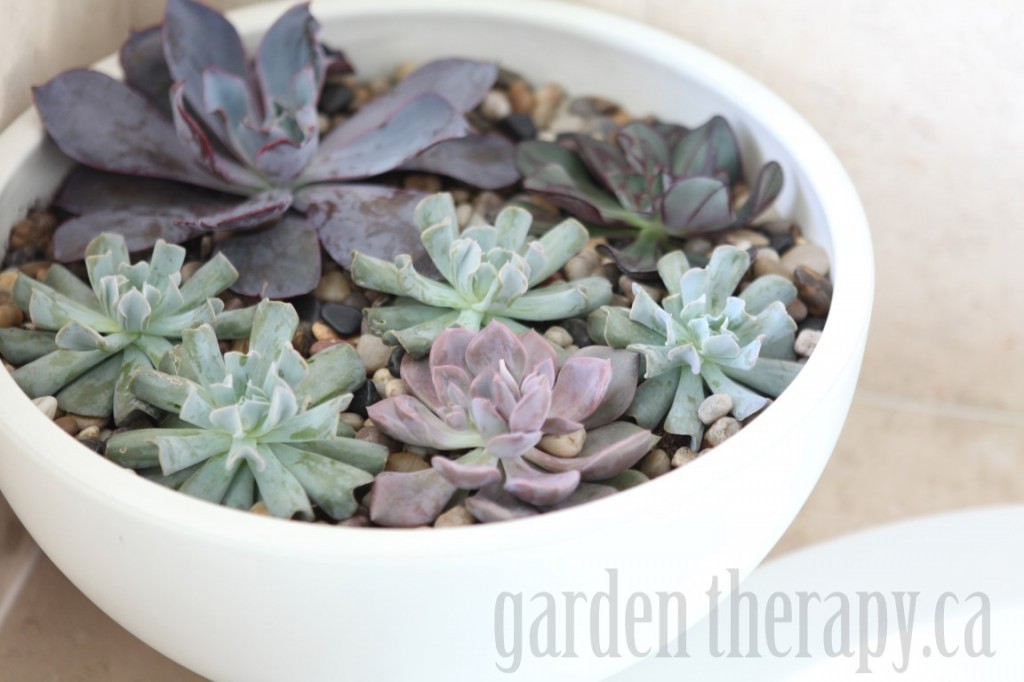
This contest is now closed. Thank you for all the entries, our winner is Janice who was chosen using the Random Number Generator. Congrats, Janice!

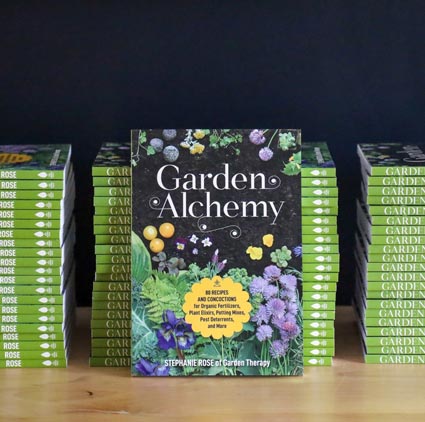


facinating. Are those also called hens and chickens?
Hi Wendy,
Not commonly.
Plants commonly referred to as “Hens and chicks” include ground hugging species of Sempervivum (houseleeks) such as Sempervivum Pekinese, Sempervivum arachnoideum (cobweb houseleek), and Sempervivum tectorum (common houseleek); and the related genus Jovibarba. The name is also used for some species of Echeveria, Sedum and Bergenia although these plants differ significantly from, and should not be confused with, Sempervivum and Jovibarba. (from Wikipedia)
Good day,
My name is William Taylor. I would like to order the Indoor Planters from your company. kindly let me know if you have that available in stock please.And i would also like to know the payment methods you accept.
Thank You